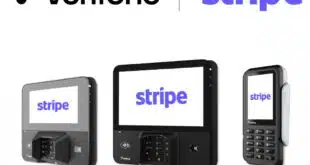By John Stewart
@DTPaymentNews
With Citigroup Inc.’s decision to join the network, the bank-controlled clearXchange person-to-person payments service has dramatically expanded its reach at a crucial time—just as it faces increasing competition from nonbank P2P rivals and in advance of a major rebranding set to take effect next year. The move also adds considerable heft to the ongoing movement of the U.S. payments business toward real-time processing, experts say.
Citi, which announced its move on Wednesday, will bring potentially millions of consumer checking accounts to clearXchange when it switches on the service early in 2017. The network already includes 11 other U.S. financial instittutions, including banking giants Bank of America Corp., BB&T Bank, Capital One Financial Corp., JPMorgan Chase & Co., PNC Bank, U.S. Bancorp, and Wells Fargo and Co. The addition of Citi’s considerable consumer base makes the system, which offers real-time payment capability, more formidable, experts say. With Citi, clearXchange will be available to more than 100 million online and 70 million mobile banking customers, according to the network.
“This is a big win for clearXchange, as Citi will dramatically expand its reach,” Aaron McPherson, an independent payments analyst, tells Digital Transactions News.
“For clearXchange and [its] users, the addition of Citi is good,” adds Sarah Grotta, director of the debit advisory service at Maynard, Mass.-based research firm Mercator Advisory Group. “This means there will be more individuals who will have the opportunity to transact with each other over the same platform in near real-time speeds, without having to go outside to utilize another payment capability like [the automated clearing house] or the card networks.”
ClearXchange offers real-time P2P payments through links managed by Scottsdale, Ariz.-based Early Warning Services LLC, a vendor of risk-management technology that acquired the network last year. Early Warning is owned by most of the same banks that started and own clearXchange. According to the most recent data available, volume on the network exceeded $16 billion in the first quarter on more than 46 million transactions.
Around the same time that Citi will be enabling clearXchange, the network will assume a new name, Zelle. The rebranding was announced last month as part of the network’s effort to re-market itself as rival non-bank P2P services like PayPal Holdings Inc.’s Venmo gain popularity.
What remains unclear is the impact Citi’s decision will have on Popmoney, a P2P payment service from banking-technology vendor Fiserv Inc. that Citi has been offering its customers. Like clearXchange, Popmoney allows consumers to send money by entering the recipient’s email address or mobile-phone number.
Fiserv, however, announced an agreement in August with Early Warning calling for Fiserv to market to its financial-institution clients “Early Warning’s P2P payment solution,” presumably a reference to clearXchange. That leads some experts to argue that Fiserv could provide a connection to clearXchange, smoothing the path for Citi to begin offering the service. “I would think it would be easier for Citi to keep the relationship with Fiserv in place and let Fiserv do the back-end movement-of-money implementation,” says Grotta.
For now, Citi says it’s keeping Popmoney. “Both clearXchange and Popmoney will be available to our customers, and they can choose to use whichever option best works for them,” says a Citi spokesperson. A spokesperson for Fiserv adds: “Together, the Popmoney and clearXchange client bases will set the stage for industry movement to real-time payments and improved consumer payment experiences and tools. Fiserv continues to support P2P payments for Citi.”





